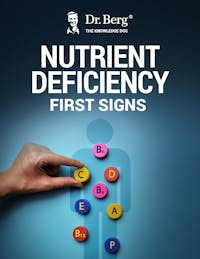Vitamin B6 Deficiencies and Amazing Benefits

25 Top Supplements That Really Work
Discover the most effective supplements to promote a healthy body
Learn about key supplements to support digestion, brain function, energy, and more
Understand how to manage common health issues with specific supplements

25 Top Supplements That Really Work
Discover the most effective supplements to promote a healthy body
Learn about key supplements to support digestion, brain function, energy, and more
Understand how to manage common health issues with specific supplements

25 Top Supplements That Really Work
Discover the most effective supplements to promote a healthy body
Learn about key supplements to support digestion, brain function, energy, and more
Understand how to manage common health issues with specific supplements

25 Top Supplements That Really Work
Discover the most effective supplements to promote a healthy body
Learn about key supplements to support digestion, brain function, energy, and more
Understand how to manage common health issues with specific supplements

25 Top Supplements That Really Work
Discover the most effective supplements to promote a healthy body
Learn about key supplements to support digestion, brain function, energy, and more
Understand how to manage common health issues with specific supplements

25 Top Supplements That Really Work
Discover the most effective supplements to promote a healthy body
Learn about key supplements to support digestion, brain function, energy, and more
Understand how to manage common health issues with specific supplements

25 Top Supplements That Really Work
Discover the most effective supplements to promote a healthy body
Learn about key supplements to support digestion, brain function, energy, and more
Understand how to manage common health issues with specific supplements

The First Signs of a Nutrient Deficiency
Learn how to recognize early symptoms related to specific nutrient deficiencies
Receive a downloadable list of early indicators your body is lacking key nutrients

The First Signs of a Nutrient Deficiency
Learn how to recognize early symptoms related to specific nutrient deficiencies
Receive a downloadable list of early indicators your body is lacking key nutrients

The First Signs of a Nutrient Deficiency
Learn how to recognize early symptoms related to specific nutrient deficiencies
Receive a downloadable list of early indicators your body is lacking key nutrients

The First Signs of a Nutrient Deficiency
Learn how to recognize early symptoms related to specific nutrient deficiencies
Receive a downloadable list of early indicators your body is lacking key nutrients

The First Signs of a Nutrient Deficiency
Learn how to recognize early symptoms related to specific nutrient deficiencies
Receive a downloadable list of early indicators your body is lacking key nutrients

The First Signs of a Nutrient Deficiency
Learn how to recognize early symptoms related to specific nutrient deficiencies
Receive a downloadable list of early indicators your body is lacking key nutrients

The First Signs of a Nutrient Deficiency
Learn how to recognize early symptoms related to specific nutrient deficiencies
Receive a downloadable list of early indicators your body is lacking key nutrients
I've been there, feeling exhausted, irritable, and just not quite right. Turns out, I had a vitamin B6 deficiency. This essential nutrient plays a crucial role in our physical and mental well-being, but when levels run low, it can leave us struggling.
I want to share with you the red flags to watch for and the steps you can take to get your B6 back on track. Ready to reclaim your vitality? Let's dive in and explore the world of vitamin B6 deficiency symptoms and treatment together.
Understanding Vitamin B6 and Its Importance
Vitamin B6 is a crucial nutrient that plays a vital role in numerous bodily functions. It acts as a coenzyme in over 100 enzymatic reactions, primarily involved in protein metabolism.
This essential vitamin is also involved in the production of neurotransmitters, red blood cells, and glucose metabolism.
Vitamin B6 is a water-soluble vitamin that comes in several forms, including pyridoxine, pyridoxal, and pyridoxamine. These forms are converted into the active form, pyridoxal-5-phosphate (PLP), which is the most potent and bioavailable form of vitamin B6.
PLP is a cofactor for enzymes involved in the synthesis of neurotransmitters such as serotonin, dopamine, and GABA. It also plays a crucial role in the production of heme, a component of hemoglobin, which is essential for carrying oxygen in the blood.
The Active Form of Vitamin B6
While all forms of vitamin B6 are essential, the active form, pyridoxal-5-phosphate (PLP), is the most effective. PLP is the form that the body ultimately uses to carry out its functions.
When supplementing with vitamin B6, it is recommended to choose a supplement that contains PLP for optimal absorption and utilization.
PLP is involved in over 100 enzymatic reactions in the body, primarily in protein metabolism. It plays a vital role in the breakdown of glycogen, the body's stored form of glucose, and is essential for maintaining proper blood sugar levels.
PLP is also crucial for the synthesis of neurotransmitters, which are chemical messengers in the brain that regulate mood, sleep, and cognitive function.
Identifying Vitamin B6 Deficiency Symptoms
Vitamin B6 deficiency can lead to a wide range of symptoms, some of which may be subtle and easily overlooked. It is essential to be aware of these symptoms to identify potential deficiencies and address them promptly.
Common symptoms of vitamin B6 deficiency include neurological issues, physical symptoms, sleep disturbances, and an increased risk of cardiovascular problems.
Neurological and Physical Symptoms
Vitamin B6 deficiency can cause various neurological symptoms, such as peripheral neuropathy, which is characterized by numbness, tingling, and burning sensations in the hands and feet.
This occurs due to the impaired synthesis of neurotransmitters and the damage to the myelin sheath that surrounds and protects nerve fibers.
Physical symptoms of vitamin B6 deficiency include fatigue, weakness, and skin problems such as dermatitis, cracks in the corners of the mouth, and glossitis (inflammation of the tongue).
These symptoms arise due to the impaired metabolism of proteins, carbohydrates, and fats, as well as the reduced production of red blood cells.

Impact on Sleep and Heart Health
Vitamin B6 deficiency can also lead to sleep disturbances, such as insomnia and restless sleep. This is because vitamin B6 is involved in the synthesis of serotonin, a neurotransmitter that regulates sleep-wake cycles.
Low levels of serotonin can lead to difficulty falling asleep and staying asleep.
Moreover, vitamin B6 deficiency has been linked to an increased risk of cardiovascular problems, such as heart attacks and strokes.
This is because vitamin B6 plays a role in regulating homocysteine levels, an amino acid that can damage blood vessels and increase the risk of blood clots when present in high levels.
Other symptoms of vitamin B6 deficiency include carpal tunnel syndrome, fluid retention, pins and needles sensation, trigger finger, excessive sleepiness, and cracks in the corners of the mouth.
If you experience any of these symptoms, it is essential to consult with a healthcare professional to determine if a vitamin B6 deficiency may be the underlying cause.
Causes and Risk Factors for Vitamin B6 Deficiency
Vitamin B6 deficiency can be caused by various factors, including dietary inadequacy, certain medical conditions, and the use of specific medications. Understanding these risk factors can help individuals identify potential deficiencies and take steps to prevent them.
Lifestyle and Medical Conditions
Alcohol consumption is a significant risk factor for vitamin B6 deficiency. Alcohol interferes with the absorption and metabolism of vitamin B6, leading to reduced levels in the body.
Chronic alcohol use can also damage the liver, which is essential for storing and activating vitamin B6.
Certain medical conditions can also increase the risk of vitamin B6 deficiency. These include diabetes, liver disease, and inflammatory bowel disease (IBD). In diabetes, high blood sugar levels can impair the absorption and utilization of vitamin B6.
Liver disease can reduce the storage and activation of vitamin B6, while IBD can lead to malabsorption of nutrients, including vitamin B6.
Medication Impact
Several medications can interfere with vitamin B6 metabolism and lead to deficiency. These include oral contraceptives, certain antibiotics, and corticosteroids.
Oral contraceptives can reduce the absorption of vitamin B6 from the gut, while antibiotics can disrupt the gut bacteria that synthesize vitamin B6.
Corticosteroids can increase the breakdown and excretion of vitamin B6 from the body.
Other medications that can affect vitamin B6 levels include antiepileptic drugs, such as phenytoin and valproic acid, and the Parkinson's disease medication, levodopa.
These medications can interfere with the absorption and utilization of vitamin B6, leading to deficiency over time.
In addition to medication use, certain surgical procedures can also increase the risk of vitamin B6 deficiency.
Gastric bypass surgery, for example, can lead to malabsorption of nutrients, including vitamin B6, due to the reduced size of the stomach and the bypassing of the upper part of the small intestine.
Effective Treatment Strategies for Vitamin B6 Deficiency
Treating vitamin B6 deficiency involves a combination of dietary changes and supplementation.
By increasing the intake of vitamin B6-rich foods and taking supplements when necessary, individuals can restore their vitamin B6 levels and alleviate the symptoms associated with deficiency.

Dietary Sources of Vitamin B6
One of the most effective ways to treat vitamin B6 deficiency is to increase the intake of foods that are rich in this essential nutrient. Some of the best dietary sources of vitamin B6 include poultry, fish, non-citrus fruits, and fortified cereals.
Poultry, such as chicken and turkey, is an excellent source of vitamin B6. A 3-ounce serving of chicken breast contains about 0.5 milligrams of vitamin B6, which is approximately 30% of the recommended daily intake.
Fish, such as salmon and tuna, are also good sources of vitamin B6, with a 3-ounce serving providing about 0.5 milligrams of the nutrient.
Starchy vegetables, such as potatoes, are another good source of vitamin B6. A medium-sized baked potato contains about 0.4 milligrams of vitamin B6, which is approximately 20% of the recommended daily intake.
Non-citrus fruits, such as bananas and avocados, are also rich in vitamin B6, with a medium-sized banana providing about 0.4 milligrams of the nutrient.
Supplementation Recommendations
In some cases, dietary changes alone may not be sufficient to treat vitamin B6 deficiency. This is particularly true for individuals with certain medical conditions or those taking medications that interfere with vitamin B6 absorption and utilization.
In these cases, supplementation may be necessary to restore vitamin B6 levels.
When choosing a vitamin B6 supplement, it is important to select one that contains the active form of the nutrient, pyridoxal-5-phosphate (PLP).
PLP is the most bioavailable form of vitamin B6 and is more easily absorbed and utilized by the body compared to other forms of the nutrient.
The recommended daily intake of vitamin B6 varies depending on age and sex. Adult men and women need about 1.3-1.7 milligrams of vitamin B6 per day, while pregnant and lactating women require slightly higher amounts.
However, individuals with vitamin B6 deficiency may need higher doses of the nutrient to restore their levels and alleviate symptoms.
It is important to consult with a healthcare professional to determine the appropriate dosage and duration of supplementation based on individual needs and health status.
Unlocking B6
Shed light on the importance of vitamin B6 and its potential deficiency symptoms, while also considering alternatives to Adderall. Vitamin B6 plays a crucial role in various bodily functions, including metabolism, neurotransmitter synthesis, and immune function.
This guide outlines common signs of vitamin B6 deficiency, such as fatigue, depression, and cognitive impairment, and discusses strategies for addressing deficiency through dietary sources or supplements.
Additionally, it explores Adderall alternatives, considering natural supplements, lifestyle changes, and cognitive enhancement practices as potential options for those seeking alternatives to prescription medications like Adderall.
By unlocking the significance of vitamin B6 and exploring Adderall alternatives, individuals can prioritize their cognitive and overall health in a holistic manner.
Conclusion
Vitamin B6 deficiency symptoms and treatment - it's a journey, but one worth taking for your health and happiness. We've explored the signs to watch for, from fatigue and mood changes to skin issues and nerve problems.
But more importantly, we've discovered the power we have to turn things around.
With the right diet, supplements, and lifestyle changes, you can boost your B6 levels and feel like yourself again. Remember, your body is counting on you to give it the nourishment it needs. So don't wait - start prioritizing your vitamin B6 intake today.
You've got this, and I'm here cheering you on every step of the way. Here's to a healthier, more vibrant you!
Previous blog
What Is the Parathyroid GlandNext blog
If You Had a Past Nose Injury Do ThisTags

Popular
08/21/2024
56.3K views
02/23/2025
47.2K views
11/18/2024
284.3K views
03/18/2024
11/21/2022




